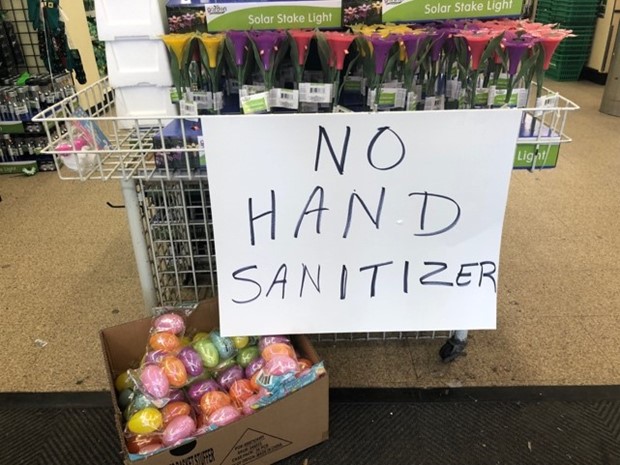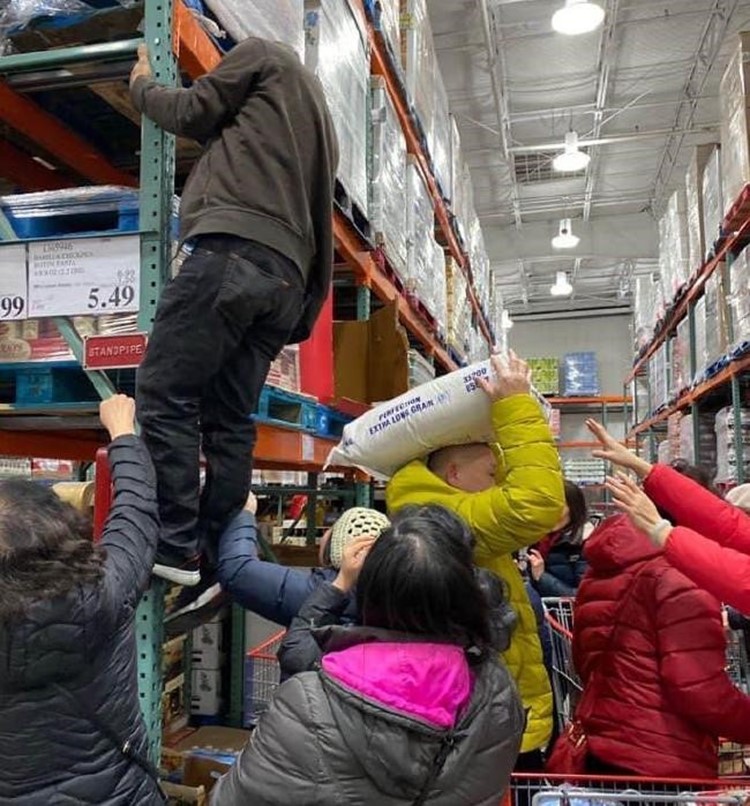The Butterfly Effect: What it Means to be Truly Global
Mar 13, 2020
One only needs to glance at the headlines from news channels around the world this week to appreciate how truly ‘global’ the world in which live has become. I am not necessarily referring to the growing geographical spread of COVID-19 cases, a phenomenon that is alarming enough and a direct threat to our health. I am thinking more of the shared, almost global human behavioral responses to the perceptions of danger arising somewhat indirectly from the impact of a relatively small number of individuals becoming unwell in different parts of the world.
From China to Europe, Malaysia to South Korea, Australia to the United States, we are witnessing a very real manifestation of the ‘butterfly effect’, where non-linear or exponential changes occur in complex global systems in response to localized events. Originated by Professor Edward Lorenz, an MIT expert on meteorology, this idea later evolved into the branch of mathematics known as ‘chaos theory’(see J. Vernon, Understanding the Butterfly Effect, American Scientist, May 2017, https://www.americanscientist.org/article/understanding-the-butterfly-effect ). Intriguingly, it points to the phenomenon of a form of highly sensitive interconnectivity that allows small inputs at the right time in the right place to exert disproportionate impacts in other parts of large systems, often at a great distance from the originating event. It is inherently volatile and unpredictable.
In this regard,
some recent events are worthy of our attention. The sudden panic buying of certain products in Hong Kong supermarkets last month has now been replayed in countries around the world.
Consumers, responding to social media rumors that have shown a remarkably virus-like pattern of global transmission, converged on retail outlets to strip supermarket shelves of commodities that rumors claimed would be in short supply. Perplexingly, some of this panicked consumer behavior occurred in places with extremely robust production and supply chain infrastructure, in countries that are largely independent of short-term interruptions to international transportation. Authority figures offering reassurances were largely ignored in this human tidal wave of seemingly irrational behavior.


One image shared around the world on twitter, depicting the panic buying of rice, proved to be a particularly vivid example of this phenomenon of viral messaging. Its origin was variously cited with ‘eye-witness’ accuracy as Ontario, British Columbia, California, and Washington. In fact, it seems that no one can say with any certainty where the image was taken. The power of a single image to influence a large number of people in different locations around the world to go out and purchase rice, however, is compelling evidence of the impact of the ‘butterfly’, and our global interconnectedness.

In the current state of global anxiety, as governments, private institutions, and even families are making decisions that will reverberate for years to come, it has been hard to maintain objectivity. Stock markets are in turmoil. Policy responses as well as individual decisions are being developed in often highly politicized and emotionally charged circumstances, where logic has been in short supply. For example, in the face of escalating demands for the curtailment of freedom of movement, authorities such as the World Health Organization have advised policies restricting trade and travel are largely ineffective in managing the very real public health issue, and in fact may work against effective cooperation to contain the virus. Even this expert advice is facing fierce local opposition in concerned communities around the world. On social media, wildly inaccurate rumors are legion.
What is the thoughtful, mature individual to make of all this? Do we stock up on rice and cleaning products? Do we stay home to protect ourselves? How should we make informed and rational choices at such a point in history? How can we keep our heads when all about us are losing theirs?
We can see that no community is immune, no one is beyond the impact of the COVID-19 ‘butterfly’. Its secondary effects have generated unhelpful responses and behaviors globally, and this underlines just how thoroughly connected we are at this time in human history. It would appear that we are intimately linked physically, emotionally, psychologically in ways that we do not understand and cannot easily control. What should be a strength – the capacity to draw on the collective intelligence, experiences, wisdom, and resources of the entire human race – reveals itself as a vulnerability. When the dominoes start to fall, how can we avoid the chain reaction to stand tall?
While it is difficult to propose a comprehensive solution to the complexities of the butterfly effect in the current crisis, it is perhaps common sense to point to some important lessons from history, to draw on the power of experience, both global and personal for foresight and insight. Our innate capacity to adapt, learn, and evolve ways to overcome should give us confidence that this too shall pass. Our self-reliance is critically important in creating a kind of circuit-breaker, where the behaviors of others do not necessarily evoke an uncritical and automatic response from ourselves. Drawing wisdom from the lessons of history, augmented by our own experience, we should have learned that despite hardships and adversity in the present, we will find a way through to a time in the near future when this too will become a part of the receding past. A time will come when rice and toilet paper are once more in abundant supply on our supermarket shelves and the butterflies of the world will go about their business without disturbing the universe.
Dr. Malcolm Pritchard
Head of School
Sources:
World Health Organisation: https://www.who.int/ith/2019-nCoV_advice_for_international_traffic-rev/en/
New York Times: https://www.nytimes.com/2020/03/08/technology/coronavirus-misinformation-social-media.html?action=click&module=Top%20Stories&pgtype=Homepage
https://www.nytimes.com/2020/03/08/opinion/coronavirus-altruism.html?action=click&module=Opinion&pgtype=Homepage
R. Kipling, If: https://www.poetryfoundation.org/poems/46473/if—
